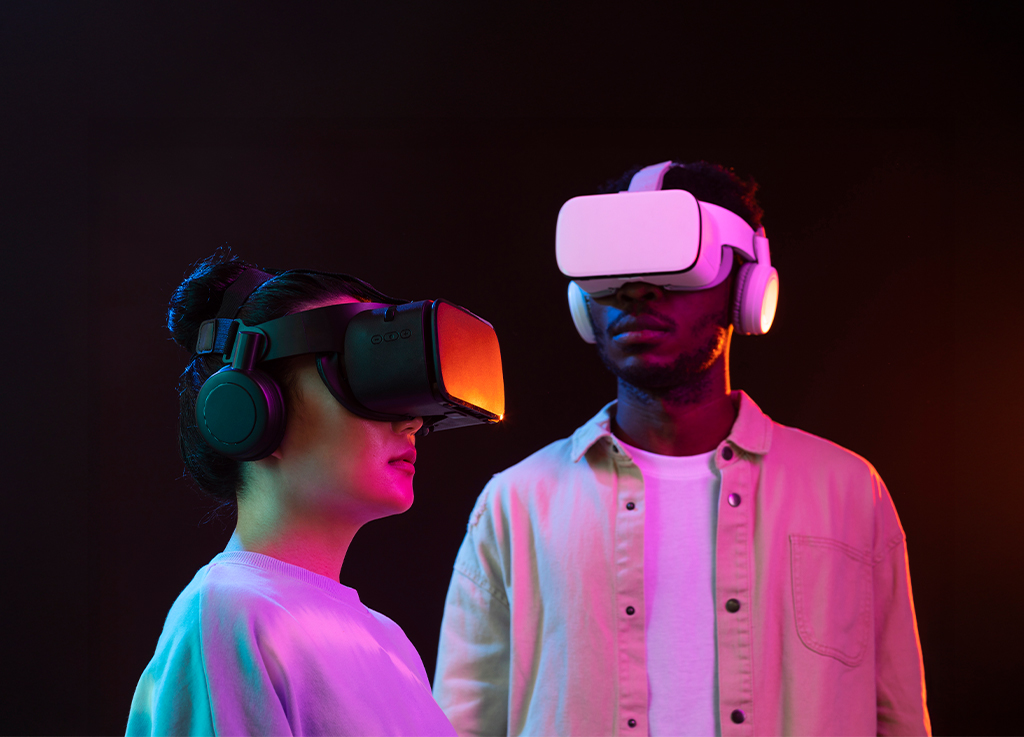The word “Metaverse” was first used by science fiction writer Neal Stephenson in his 1992 hit book “Snow Crash.” In the story, the “Metaverse” was a virtual world presented as an alternative escape route to a physical world that had turned into a nightmare. The concept has gained even more popularity since October 2021 when Facebook announced that it would change its brand name to “Meta”.
According to AIPA‘s “Study of Metaverse Perception in Society: Social Impact”, the rate of those who have heard this word in Turkiye is close to 60%. There are currently 37 AR Startups in Turkiye. One of them has been working on it since 2007.
Metaverse is launched as a digital world where anything you can imagine can exist in the comfort of the physical world. It would be correct to say, “Alice in Wonderland”. The truth is that the “Metaverse” is simply the future of the internet. We are talking about a virtual world where you work with people in digital offices, have meetings, sell your products, socialize, and go shopping. There are also many people who prefer to use the word “phygital” instead of metaverse. It also seems like a fitting word, as its meaning is the bridge between the digital and physical worlds.
Personally, I find the word “phygital” less scary and more sympathetic, but like everyone else, I wonder how far this bridge will go and I keep an eye on it. Currently, more than 30 thousand parcels have been purchased from this virtual universe through various platforms in Turkiye. While there are foreign investors who have bought land in the virtual universe from Istanbul, Izmir, Ankara, Antalya and Bursa, the depth of faith of those who have already started to build a life there, the fact that the leaders of the global business world have started to invest in it, building their presence in this digital universe, the pursuit of creative business opportunities within the metaverse for both large and small enterprises are clear indications that we are moving to another dimension too quickly.
According to an Oct. 20 announcement, Interpol has launched the first ever Metaverse specifically designed for law enforcement worldwide to track criminal activity in this virtual universe. The most recent data shows that 83.7 million Americans used augmented reality every month in 2020. The 2023 forecast is that there will be 110 million people using it by then. Research firm Gartner predicted that 25% of people will spend at least one hour a day in the metaverse by 2026.
By 2030, “a large proportion of people will be in the metaverse in some way,” predicts Melanie Subin, a director at The Future Today Institute in New York City. Some will simply use it “only to fulfill work or educational obligations,” she said. Others “will live the majority of their waking hours ‘jacked in.
If the metaverse is to bring organizations into an age of mass customization in the future, let’s take a look at how these companies can be positively impacted.
- Remote Work Culture and Collaboration: Users can create a virtual working environment wherever they want. Collaboration will be easier, faster, and better. Employees can interactively brainstorm with their colleagues from all over the world in their comfort zone, find creative solutions and become happy participants.
- Improved Customer Experience: Businesses will be able to open virtual stores in the Metaverse. Customers will be able to try products on their digital avatars. This allows businesses to receive helpful feedback for product development. Thus, it offers a personalized and fast service, easy access, and honesty. Marketing strategies can be optimized accordingly.
- Virtual Events: By setting up virtual booths, an organization can create an event where attendees can participate in the virtual world just as they would in a physical event.
- Monetization of Digital Assets: The digital world requires digital money. Key players in the payments industry are developing crypto offerings and partnerships to maximize their position in the metaverse.
- Faster Learning in the Metaverse: AI-equipped digital coaches could be available to assist with employee training. More employees can be provided with interactive and entertaining trainings that make them feel like they are participating in a game. This makes learning easier and faster.
- Business Operations: Some organizations in industries are already using augmented reality (AR) to improve operations. In the most complex field and service work, the metaverse can enable employees to conduct more coordinated work, both internally and with others, using this technology.
- Advertising, Branding and Marketing Opportunities: We expect the metaverse to bring new approaches to brand storytelling and advertising in general. People like stories. These stories provide clues about the company and its values. It seems that with the metaverse, all the storytelling in brand slogans, advertisements and marketing processes will turn into “living the story”.
- New Revenue Streams: The new digital assets along with existing assets can create great opportunities for many companies.
A challenging decision process awaits both individuals and organizations in many respects. It is not known whether each of us can create our own avatar and exist in that vast universe without losing our reality, or whether organizations investing in this digital universe will achieve the efficiency they hope for. Before us stands a giant concept that makes us think more than just the choice of the blue pill or the red pill, as in the movie The Matrix.





